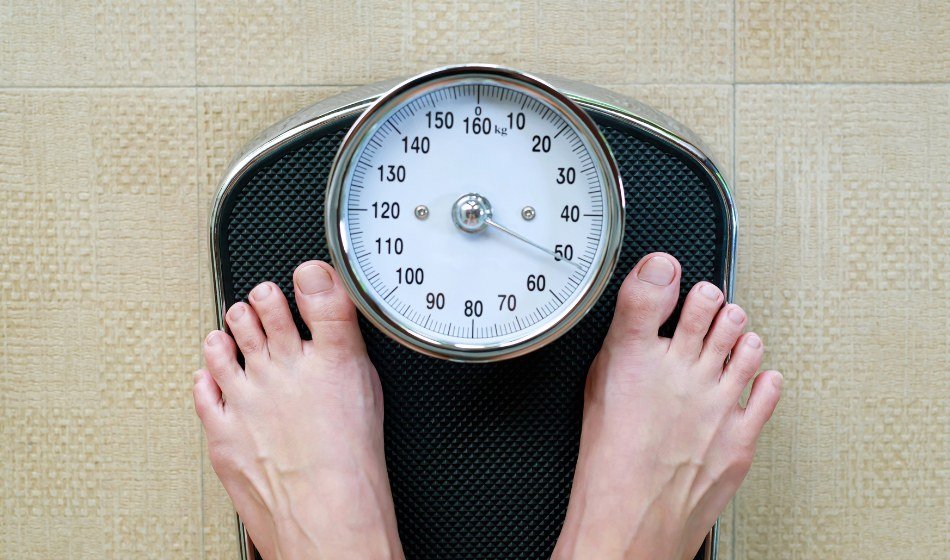Why Fat Loss Matters Far More Than Weight Loss
Introduction
In the world of health and fitness, the terms "weight loss" and "fat loss" are often used interchangeably. However, understanding the distinction between them is crucial for achieving your long-term health and fitness goals. While weight loss refers to a decrease in overall body weight, fat loss specifically targets the reduction of body fat. In this blog we delve into why fat loss is far more beneficial than weight loss and how Ebylife's personalised approach can help you achieve sustainable results.
Difference Between Fat Loss and Weight Loss
Weight loss can result from losing water, muscle, and fat. On the contrary, fat loss focuses on reducing adipose tissue while preserving lean muscle mass, leading to far better health outcomes and a more toned physique.
Importance of Understanding This Difference
Recognising the importance of fat loss over weight loss helps set realistic and healthy fitness goals. This approach not only improves physical appearance but also enhances overall health and well-being.
Understanding Weight Loss
Definition of Weight Loss
Weight loss is the reduction of total body mass, which includes muscle, fat, and water weight. This can be achieved through various methods such as diet, exercise, or a combination of both.
Common Methods of Achieving Weight Loss
Calorie Restriction: Reducing daily caloric intake to create a calorie deficit.
Increased Physical Activity: Engaging in exercises to burn more calories than consumed.
Fad Diets: Short-term diets that promise quick results, often through extreme calorie restriction or elimination of food groups.
Why Weight Loss Can Be Misleading
Muscle Mass Loss: Weight loss often includes the loss of muscle mass, which can lower metabolic rate and lead to a less toned appearance.
Water Weight: Initial weight loss is frequently due to water loss, which can be quickly regained.
Health Risks: Rapid weight loss can result in nutrient deficiencies, weakened immune system, and other health issues.
According to the National Institute of Diabetes and Digestive and Kidney Diseases (NIDDK), rapid weight loss can lead to gallstones, gout, fatigue, and other health complications (MedlinePlus)
Understanding Fat Loss
Definition of Fat Loss
Fat loss specifically targets the reduction of adipose tissue, achieved through sustainable lifestyle changes in diet and exercise. This approach focuses on losing fat while maintaining or even gaining muscle mass.
Effective Strategies for Achieving Fat Loss
Strength Training: Builds and help preserve muscle, which increases metabolic rate and aids in fat burning.
Balanced Nutrition: Emphasises consuming the right balance of protein, healthy fats, and complex carbohydrates for sustained energy and muscle preservation.
Related article: Eat This, Not That: Delicious Food Substitutes for Weight Loss
Consistent Sleep: Ensures hormonal balance, which is crucial for fat metabolism and overall health.
How Fat Loss Impacts Overall Health
Reduces Risk of Chronic Diseases: Lower body fat levels decrease the risk of heart disease, diabetes, and hypertension.
Improves Metabolic Function: Enhances insulin sensitivity and increases metabolic rate (your body’s ability to burn calories).
Increases Physical Performance: Preserved muscle mass leads to better strength, endurance, and mobility.
Benefits of Fat Loss Over Weight Loss
Improved Body Composition
Focusing on fat loss results in a leaner, more toned physique, as it prioritises muscle preservation and fat reduction. This leads to better body composition, which is a more accurate indicator of health than total body weight.
Better Metabolic Health
Lower levels of visceral fat improve metabolic health, reducing the risk of metabolic diseases such as diabetes and cardiovascular conditions. Fat loss helps in maintaining healthy blood sugar and cholesterol levels.
Enhanced Physical Performance
Maintaining muscle mass through fat loss improves strength, endurance, and overall physical performance. This not only enhances daily functioning but also boosts athletic abilities and overall fitness levels.
Long-term Sustainability
Fat loss achieved through balanced nutrition and consistent exercise is more sustainable over the long term compared to rapid weight loss methods. Sustainable fat loss promotes healthy eating and exercise habits that can be maintainable for life.
Common Misconceptions
Myths About Fat Loss and Weight Loss
Myth: All weight loss is beneficial. Truth: Losing muscle and water weight can be detrimental to health and fitness.
Myth: Fat loss requires extreme diets. Truth: Sustainable fat loss is achieved through proper exercise programing, balanced and consistent nutrition and healthy lifestyle habits.
Clarifying the Truths with Scientific Evidence
Research Studies: Studies show that preserving muscle mass through strength training and balanced nutrition leads to better long-term health outcomes.
Evidence-Based Practices: Consistent, moderate calorie deficits combined with regular exercise are more effective for fat loss than extreme diets.
Ebylife's Approach to Fat Loss
Overview of Holistic Fitness and Wellness Programs
Ebylife’s programs integrate exercise, nutrition, and lifestyle coaching to promote fat loss and improved overall wellness. Our approach is personalised, ensuring that each client’s unique needs and goals are addressed.
Testimonials and Success Stories from Clients
“Martin has been my trainer for over six years now. His great sense of humour and empathy make working out enjoyable, and his tailored training sessions have helped me achieve my fitness goals.” – John Smith
“Martin’s balanced approach to fitness and healthy living has transformed my life. His personalised training and nutrition plans have led to sustainable fat loss and improved overall health.” – Jane Doe
How Ebylife’s Personalised Training and Nutrition Plans Focus on Fat Loss
Personalised Workouts Plans: At Ebylife, we create fully customised workout plans tailored to each individual’s unique needs and goals. By prioritising strength training we can ensure effective fat burning and muscle preservation.
Expert Guidance: Our experienced, English-speaking personal trainers in Barcelona provide continuous support and accountability, helping you stay on track throughout your fat loss journey.
Nutritional Guidance:: We focus on a balanced combination of strategic diet, exercise, and lifestyle changes, avoiding fads and extreme diets, to promote long-term fat loss and overall wellness.
Lifestyle Coaching: By identifying triggers and making small, conscious changes to daily habits, we help our clients achieve substantial, long-lasting results that are not only seen in the changes to their physique but also experienced in their emotional and physical health.
Conclusion
In summary, it's crucial to understand the difference between fat loss and weight loss. While weight loss includes the reduction of muscle, water, and fat, focusing on fat loss specifically targets reducing body fat while preserving lean muscle mass. This approach not only improves body composition but also enhances metabolic health and physical performance, leading to significant health and fitness.
Shifting your focus from mere weight loss to fat loss can result in a stronger, healthier, more toned physique and greatly improve overall health. By adopting balanced nutrition, consistent exercise, strength training and healthy lifestyle habits, you can achieve long-term fat loss.
Forget about the scales and take that first step towards a healthier, fitter and leaner you by shifting your focus towards fat loss, instead of weight loss.





